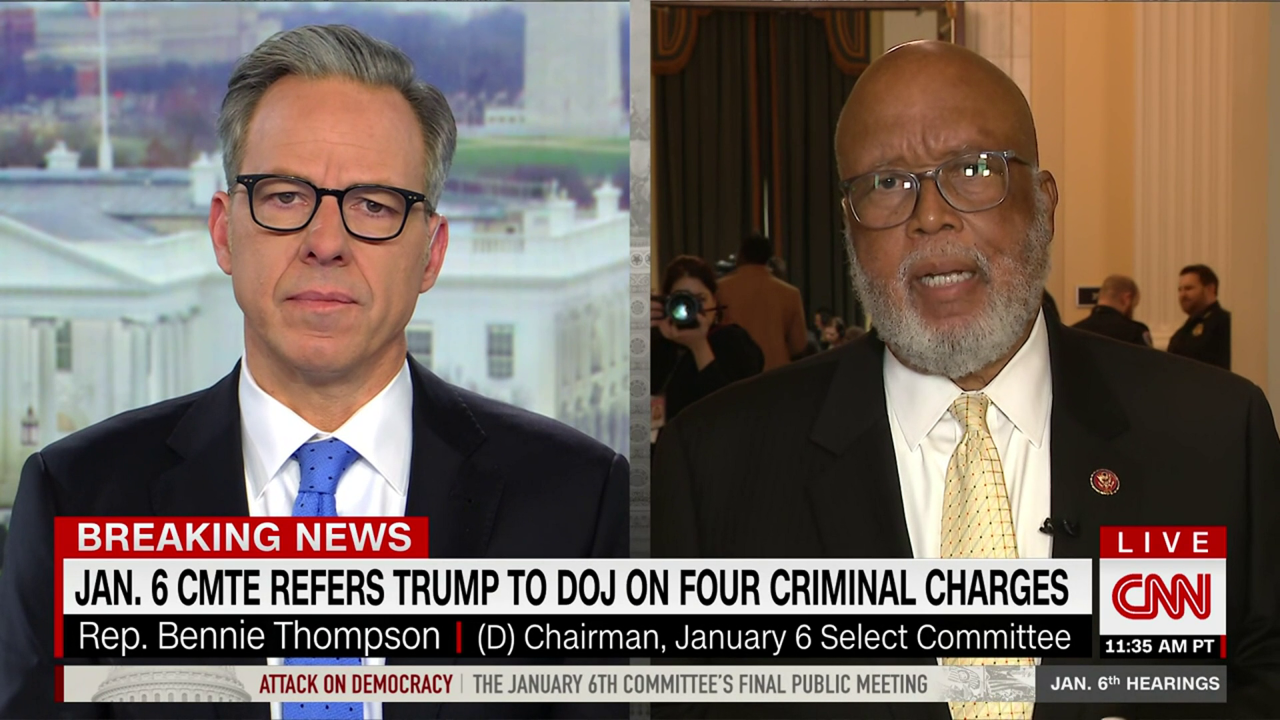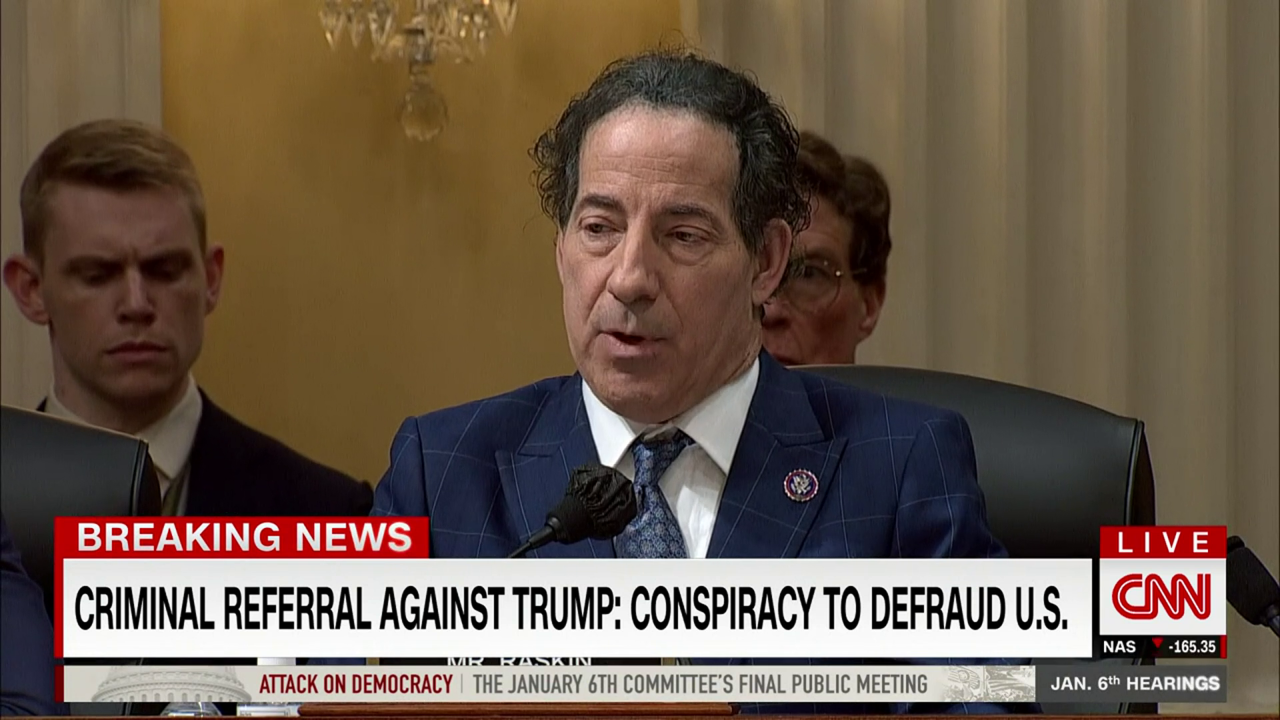The Jan. 6 committee used its final public meeting Monday to summarize its 17-month investigation with a simple closing statement: All roads lead to Donald Trump.
Here are some of the key takeaways:
The committee refers Trump to the DOJ
For months, the committee went back-and-forth over whether it would refer Trump to the Justice Department for criminal prosecution. On Monday, the committee didn’t equivocate.
The committee referred Trump to DOJ on at least four criminal charges, while saying in its executive summary, released after the meeting, it had evidence of possible charges of conspiring to injure or impede an officer and seditious conspiracy.
In practice, the referral is effectively a symbolic measure. It does not require the Justice Department to act, and regardless, Attorney General Merrick Garland has already appointed a special counsel, Jack Smith, to take on two investigations related to Trump, including the Jan. 6 investigation.
But the formal criminal referrals and the unveiling of its report this week underscore how much the Jan. 6 committee dug up and revealed Trump’s efforts to overturn the 2020 election in the lead-up to Jan. 6. Now the ball is in the Justice Department’s court.
All roads lead to Trump
Committee members repeatedly pointed to Trump’s personal involvement in nearly every part of the broader plot to overturn the 2020 election and focused squarely on his role in the violence that unfolded on Jan. 6.
Monday’s presentation was a compelling closing salvo for the committee, which said Trump sought to break “the foundation of American democracy.” Members stressed that Trump knew the election was not stolen but continued to push baseless claims about widespread voter fraud in an effort to upend Joe Biden’s legitimate victory.
Visually reinforcing their argument
The committee relied once again on video — an effective and memorable tool the panel has used throughout its hearings with closed-door witness testimony and harrowing scenes from the violent attack on the Capitol, to make an its case against Trump.
The montage went step-by-step through Trump’s efforts to block his election loss, showed how his attacks upended the lives of election workers and played body-cam footage of officers attacked by rioters.
A bipartisan, if one-sided, endeavor
Though GOP lawmakers have called the committee partisan, the panel is, in fact, bipartisan.
Two Republicans who volunteered to join the committee: Rep. Liz Cheney and Adam Kinzinger. They both brought GOP staff members along with them who worked for the committee.
To be sure, Cheney and Kinzinger are outliers in their caucus because they are anti-Trump. And that is the core of Trump’s critiques of the committee — that it stacked with Trump haters. Still, even if they oppose Trump, Cheney and Kinzinger are still deeply conservative Republicans.
No matter what Trump and his allies say, Democrats will forever be able to accurately assert that the panel’s findings, conclusions, its final report and its criminal referrals are bipartisan.
Read more takeaways here

























